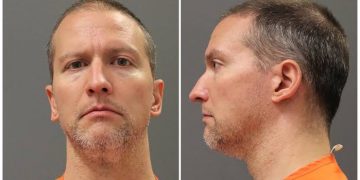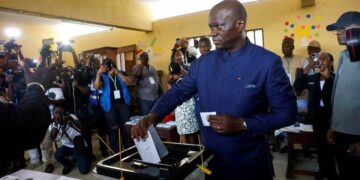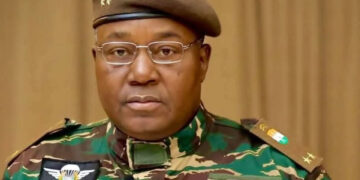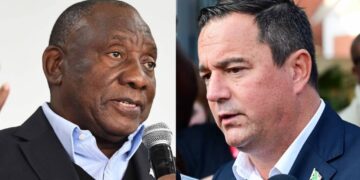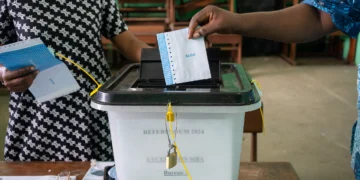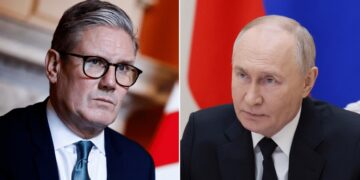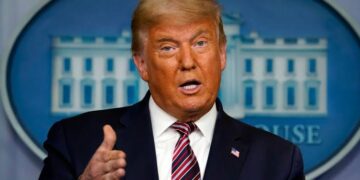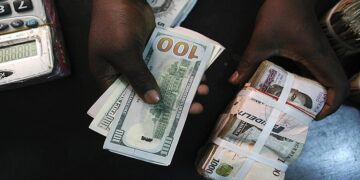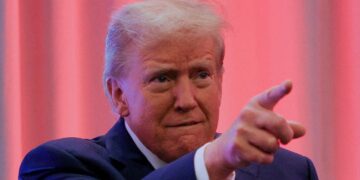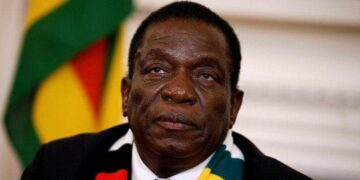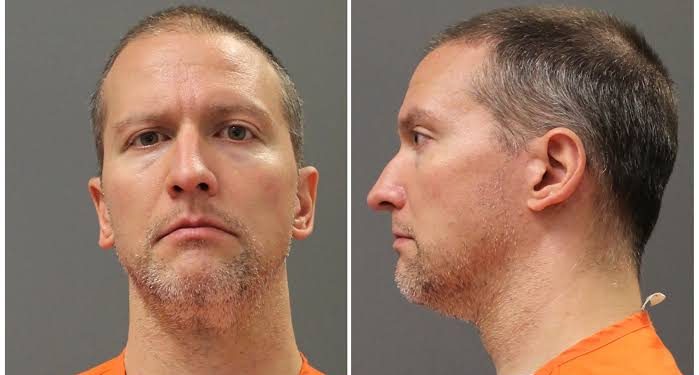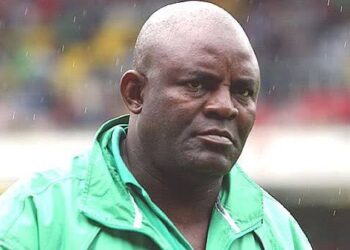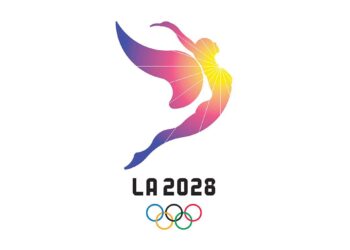The defense attorney for the former Minneapolis police officer convicted of killing George Floyd has requested a new trial, on the basis of abuse of discretion and media intimidation.
He wants a hearing to have the verdict impeached because of what he alleges to be jury misconduct, according to a court document filed Tuesday.
Derek Chauvin was convicted last month of second-degree unintentional murder, third-degree murder and second-degree manslaughter in the May 25 death of Floyd.
Evidence at trial showed Chauvin pressed his knee against Floyd’s neck for 9.5 minutes, as the late man said he couldn’t breathe and went motionless.
Defense attorney Eric Nelson said he is requesting a new trial in the interests of justice. He said there were abuses of discretion that deprived Chauvin of a fair trial, prosecutorial and jury misconduct and that the verdict was contrary to law.
A request for a new trial is routine following a guilty verdict and often mirrors issues that will be raised on appeal, said Mike Brandt, a Minneapolis defense attorney who has been closely following the case. If this request is denied, it can add another layer of decisions for Nelson to appeal, he added. Brandt and others have said Chauvin’s convictions are unlikely to be reversed.
Among the many reasons Nelson cited in his request for a new trial is that Judge Peter Cahill abused the discretion of the court and violated Chauvin’s right to due process and a fair trial when he denied Nelson’s request to move the trial to another county due to pre-trial publicity.
He also said Cahill abused his discretion when he denied an earlier request for a new trial based on publicity during the proceedings, which Nelson said threatened the fairness of the trial. Nelson said that publicity included “intimidation” of the defense expert witness, which he said could have a “far-reaching chilling effect” on the ability of defendants to get expert witnesses in high-profile cases, including the upcoming cases of the three other former officers charged in Floyd’s death.
“The publicity here was so pervasive and so prejudicial before and during this trial that it amounted to a structural defect in the proceedings,” Nelson wrote.
Nelson also cited Cahill’s refusal to isolate the jury for the trial or warn them to avoid all media, and with his refusal to allow a man who was with Floyd at the time of his arrest to testify.
